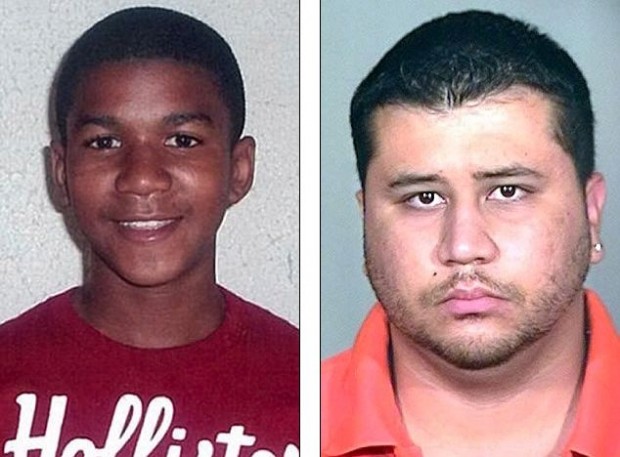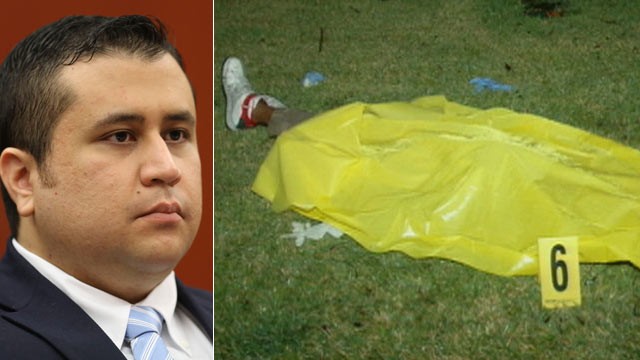August 6, 2013 |
Florida law enforcement, from the local police to the special prosecutor overseeing the Trayvon Martin case, did not want to see George Zimmerman convicted of murder and deliberately threw away the case, allowing their prosecution to crumble. A growing chorus of attorneys and analysts who know jury trials and courtroom procedure say this is the inescapable conclusion to be drawn from the parade of otherwise incoherent missteps by George Zimmerman’s prosecutors.
“I find it personally difficult to believe it was not thrown,” said Warren Ingber, a New York-based attorney who has practiced law for decades. “I am far from alone in this assessment, and it reveals even harder truth why this case was a miscarriage of justice.”
Ingber detailed his reasons in a letter sent to a NPR’s “Left, Right and Center”program after its liberal analysts would not touch that possibility. But there’s been a growing chorus saying the Zimmerman prosecution was not merely incompetent, but going through the motions and intentionally losing. This includes Florida talk radio host Randi Rhodes, who covered the trial daily, to New Orleans Times-Picayune editorial writer Jarvis DeBerry whose source canvassed 20 local prosecutors, to celebrity lawyers like Alan Dershowitz and other legal analysts, and longtime lawyers like Ingber who was indignant at NPR’s commentators ceding too much ground to right-wingers.
Here are 10 key points the lawyers in these reports cite behind this conclusion.
1. There was enough evidence to convict, despite biased police work.That assessment “is itself a miracle,” Ingber wrote, citing how the Sanford, Florida police handled the killing. “Martin’s body lay in the morgue as a John Doe for three days while his mother was asking for his whereabouts. His cell phone records indicated he was on the phone as he was being killed. The person he was on with had no idea where he was. Meanwhile his admitted killer was on the loose and allowed to produce exculpatory evidence while crime scene evidence was deteriorating. It appears from videos of Zimmerman ‘strolling’ into custody that he was not that badly hurt. But in Florida the right of self-defense includes, for whites, the freedom to exculpate oneself. And when that wasn’t enough, the police stepped in, as when the lead detective Chris Serino told Zimmerman the screams for help were his, not Martin’s, over his objection.”
2. The governor’s handpicked prosecutor enters with an agenda.“No account of this trial is complete if it does not start with how the deck was stacked before the trial took place,” Ingber said. “But it continues in the identity of the person that Florida’s [Republican] Gov. Rick Scott selected to prosecute the case: Angela Corey, the prosecutor who sentenced Marissa Alexander [a black woman] to 20 years for firing a gun into the air in her own garage in defense against a convicted abuser of women. I’ll leave it to Alan Dershowitz, who knows the law of defamation, to describe her professional lapses that ‘bordered on criminal conduct.’”
3. No change of venue was demanded.There were a series of decisions made by the prosecutors that incrementally lowered their chances of obtaining a conviction. The first concerned not seeking a jury trial in another county. The Seminole County district attorney and multiple judges recused themselves, “proof that the case was a political hot potato and that there was a fear that there would be negative political ramifications following a Zimmerman verdict,” Times-Picayune editorial writer Jarvis DeBerry wrote. But the state did not want to move the trial.
4. The early mishandling of the jury.Prosecutors meekly tried to remove two jurors with very strong pro-Zimmerman biases, but did not use more forceful “preemptory challenges,” DeBerry noted. “Juror B-37… should never have been let onto the jury after she said there were ‘riots’ in Sanford over this case,” Ingber added. “How was that allowed to occur? B-37’s interview is worth a listen.” She called Martin a “boy of color” (at 10.41) and mentioned “rioting” twice (12.12 and 14.32), calling it “organized” by Martin supporters and adding that she didn’t trust mainstream media.
5. There were no men on the jury.DeBerry, citing a former prosecutor who “handled hundreds of homicide cases over his career,” said opposing an all-female jury was “prosecuting 101. In a fatal fight between men, you fight to get men on the jury. Men are more likely to convict.”
6. The jury was improperly sequestered.While talking about the jury—before turning to what the prosecution did and didn’t do with witnesses—it’s also important to note that the jury wasn’t properly kept away from interacting with the public. “Why wasn’t the jury properly sequestered?” Ingber said. “Why was it given time with family members, time enough for, oh, I don’t know, arranging a book deal?” (Juror B-37 signed a contract with a literary agent immediately after the trial ended.)
7. Missteps with the state’s witnesses.The prosecution failed to adequately prepare its witnesses, such as Rachel Jeantel, who was on the phone with Martin during the confrontation “and was the closest thing the state had to a star witness,” DeBerry wrote.
“Why was the jury’s prejudices given free rein to suppose, as the entire nation did, that Rachel Jeantel was stupid because of her speech when she has an underbite that will require surgery that she is putting off?” Ingber explained. “Why did even close observers of the trial learn this only afterward, from this supposedly stupid witness? Could the prosecution have been even stupider? Or is prosecution of a white man for killing a black man in the South just stupefying?”
Jeantel was hardly the state’s only bad witness. “What of the ill-prepared “I know nothing” state medical examiner, who changed his testimony in the course of his examination, including waffling on the absurd notion that marijuana might have made Martin aggressive?” he wrote. “Why did he ignore testimony that Zimmerman was the aggressor? One wonders who got to this man. Surely not those Sanford rioters!”
8. More missteps with Zimmerman’s witnesses.If your side’s witnesses are falling down, lawyers usually work even harder to undermine their opponent’s case. But exactly the opposite unfolded.“The defense witness that impressed B-37 the most was that friend of Zimmerman’s (whom she mistook for a doctor) who testified he knew it was Zimmerman’s voice based on a knack acquired in military service,” Ingber said. “He had been sitting in the courtroom throughout the trial before his testimony—undisguised and adjacent to the defense team—in flagrant violation of the witness sequestration rule. He should never have been permitted to testify. Where was the prosecution?”
He cited other examples: “How could the prosecutors have been so stupid as to allow Zimmerman to testify in his own defenseby admitting into evidence his Sean Hannity interview on Fox News for the ostensible reason of admitting a minor detail?” Inger said. “Could it have missed the predictable effect on the jury’s sympathies of the defendant appearing before a fake journalist on Fox? Could it not see this for a one-sided waiver of Zimmerman’s Fifth Amendment rights against self-incrimination? Without risking cross-examination?”
DeBerry’s ex-prosecutor source noted more examples. “A Sanford police officer who was asked if he believed Zimmerman’s story of self-defense was allowed to answer yes without the prosecution objecting,” he said. “Witnesses should not be permitted to offer an opinion on the credibility of other witnesses or other evidence. The next day prosecutors asked the judge to strike that portion of the investigator’s testimony, and she complied. But why did the prosecutors sit quietly as the question was asked and answered?”
9. Florida’s abysmal laws compounded the botched prosecution.Many media outlets analyzed Zimmerman’s acquittal by saying that the state overcharged him—because second-degree murder has a higher standard of proof than the lesser charge of manslaughter. The lawyer-critics don’t buy that analysis, however.
“All of the evidence is that Zimmerman was the aggressor,” Ingber said. “Jeantel testified that Martin was being stalked and that Martin’s cell phone was knocked out of his hand in real time and fell to wet grass just as the struggle—obviously self-defensive on Martin’s part—commenced. The tape of the 911 call is to the same effect. Zimmerman’s self-serving testimony, the coached evidence from the detective about whose voice it was—it’s all fluff. The two telephone calls set it all out. Who was on top for a moment means nothing. They rolled around. The injuries were not consistent with a ground-and-pound attack.
“But say they were. Is the explanation of the not-guilty verdict as to manslaughter that the jury thought it is legal for a man with a gun to initiate an altercation with an unarmed boy and shoot him dead if he starts to lose the fight and fears for his own?”
The Florida law deciding this case is abysmal, Ingber said, noting that this added to the jury’s confusion during deliberations, and in getting the charge from the judge. “Try reading the instructions. Really try. I did,” he wrote. “I am an attorney and thought I knew what the elements of manslaughter were until I read this. Anyone who can parse this—in written form, never mind by ear—qualifies for a Supreme Court nomination.”
“But it’s even worse,” he continued, saying these were yet more prosecutorial blunders. “During deliberations the jury, having only the legal smarts of a mere circuit court judge, asked for clarification as to manslaughter but never received them. Why was that?”
10. Florida wanted to get rid of the case, not win it.The Times-Picayune’s DeBerry said his ex-prosecutor source “said he’s polled about 20 prosecutors in New Orleans, and though all aren’t sure that they would have been able to get Zimmerman convicted as charged, each of them is convinced that he or she could have gotten more than an acquittal. It was a clear case of tanking, he argued: ‘They didn’t want to win this case.’”
There are political benefits to that outcome, Ingber said, explaining what would be the state’s motive for proceeding so sloppily and working not to get a conviction.
“Bear in mind how cost-free all of this shoddy prosecution is,” he said. “Once jeopardy attaches and a defendant is exonerated the prosecutor will suffer no judicial embarrassment because any further proceedings would be double jeopardy. Translation: Zimmerman can’t be retried and the prosecution also gets off the hook. So this could all be swept under the rug and Angela Corey and Rick Scott… can go their merry way.”
Who wins when the state deliberately loses?
It is clear that the details of the Trayvon Martin case will not be forgotten by people who watched the trial or heard it described in detail by radio hosts such as Randi Rhodes, who understand how Florida’s legal system can be stacked in favor of white defendants. The striking conclusion after listening to these lawyers is that even with all the state’s policing and courtroom errors, there was enough to obtain a conviction.
“It takes no partisan slant to see the procedural injustice in this case,” Ingber said. “It is not hard to make the case that the evidence supported a manslaughter verdict beyond a reasonable doubt. This was another O.J. [Simpson] case, except this was not a case of jury nullification. It is to theEmmett Till case what modern-day voter suppression is to the poll tax. You need to drill down to see it for what it is.”




